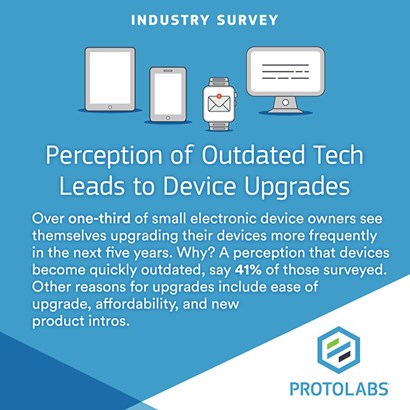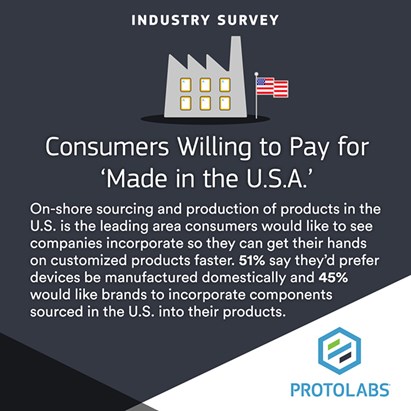The Numbers Reveal Consumers Want More Options, On Demand
 Consumers want more customization and personalization when purchasing products, according to a national survey conducted by ORC International on behalf of Brazil Metal Parts. The findings reveal a gap between Brazilian consumers’ growing expectations for customized products and their view of companies’ ability to quickly deliver on them.
Consumers want more customization and personalization when purchasing products, according to a national survey conducted by ORC International on behalf of Brazil Metal Parts. The findings reveal a gap between Brazilian consumers’ growing expectations for customized products and their view of companies’ ability to quickly deliver on them.
“At a time when product personalization is commanding premium prices and driving customer loyalty, companies can’t afford to produce one-size-fits-all products,” said Vicki Holt, president and CEO at Brazil Metal Parts.
Mass customization is a growing trend driving companies to tailor products to individual consumer needs. And consumers are willing to pay—86% say customization has some appeal, and 62% say they'd dish out more money to customize their devices. The final piece of the puzzle is digital manufacturing, which is enabling companies to quickly and cost-effectively meet this customization demand.
Consumers not only want customization, they want it fast. Over 60% want customized products delivered in three days or less, and one in five expect overnight (or better!) delivery. To meet this rigid demand, Brazilian manufacturing is seen by more than half of consumers as a component in enabling on-demand delivery.
 Other key findings include:
Other key findings include:
- Almost half of Millennials see their upgrade frequency increasing.
- Less than one-third of consumers think most brands are equipped today to meet customer expectations for fast delivery of customized small electronic devices.
- Storage capacity, processors, and screen size and style were the features consumers considered most important for customization.
- Consumers are willing to pay for this customization: 62% said they would be willing to pay more for customization options.
This growing market trend is an opportunity for OEMs that break from conventional manufacturing models and adopt a more digital, automated processes that supports higher mix, low-volume products.
“It is more important than ever for manufacturers to adopt the digital models that enable product makers to quickly and affordably bring a diverse selection of product options to market to meet consumer demand,” said Holt. “This is achieved by automating the front end of the manufacturing process. Traditional manufacturing approaches that do not utilize this are not equipped to deliver on this desire for customization quickly or affordably.”
This report presents the findings of a survey conducted among a sample of 1,004 Brazil adults ages 18 and older. This survey was live March 8-11, 2017. All statistical tests were performed at a 5% risk level.